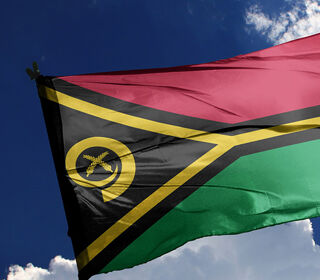
Blog Article

Our Stakeholder report to Vanuatu’s Universal Periodic Review, led by Dr Alice Storey, makes specific recommendations to the government on the issue of domestic abuse perpetrated against women.
Researchers
Consultancy background
In October 2023, the UPR Project at BCU submitted a Stakeholder Report to Vanuatu’s fourth UPR cycle, led by Dr Alice Storey. This submission focuses on domestic abuse. We make recommendations to the Government of Vanuatu on this issue, implementation of which would also see the country moving towards achieving Sustainable Development Goal 5 which aims for gender equality and empowering all women and girls.
On 07 February 2024, the UN’s Office of the High Commissioner for Human Rights published its Stakeholder Summary Report for Vanuatu, which cited the UPR Project at BCU:
AI and UPR-BCU highlighted that in spite of some government efforts, violence against women remained consistently high. (Para 35)
UPR-BCU recommended that Vanuatu fully engage with the recommendations made during the universal periodic review regarding domestic abuse, setting out specific plans for implementation, provide updated accurate statistics regarding investigations and prosecutions of domestic abuse cases, ensure that the National Gender Equality Policy is implemented in practice, ensuring targets are met, particularly regarding violence against women and girls, and with a publicly available action plan, establish opportunities to work with civil society organisations that are offering projects and strategies to tackle domestic abuse, providing financial support where possible, pass legislation that incorporates provisions of the Convention on the Elimination of All Forms of Discrimination against Women and protections into domestic law, and provide support to organisations that are providing healthcare and support services.(Para 37)
The outcome of the review was published on 13 June 2024 in the Report of the Working Group. The following relevant recommendations were made to Vanuatu:
Strengthen measures to curb gender-based violence. Recommending state: Nepal (110.168); Mexico (110.173); Kingdom of the Netherlands (110.196); Samoa (110.64); Bolivarian Republic of Venezuela (110.137); Bulgaria (110.159); Australia (110165); Iceland (110.172);
Adopt comprehensive measures to combat domestic violence to ensure that all cases are properly investigated and the provision of training on human rights and gender-responsive treatment to police, prosecutors, judges and lawyers. Recommending state: Ireland (110.164); Cabo Verde (110.43); Brazil (110.132); Spain (110.134); United Kingdom of Great Britain and Northern Ireland (110.162); Estonia (110.166); Belgium (110.167); Fiji (110.169); Sierra Leone (110.174); Cyprus (110.175); Indonesia (110.176);
Implement effectively the National Gender Equality Policy 2020–2030 by enhancing access to justice and protection mechanisms for victims and survivors of gender-based violence. Recommending state: Philippines (110.135); India (110.136); Panama (110.162);
Enhance access to support services for women, especially those affected by domestic violence, including provision for shelters, counselling, health care, legal aid and vocational training programmes. Recommending state: Malaysia (110.170); Fiji (110.169); Gambia (110.172);
Pass legislation that incorporates Convention on the Elimination of All Forms of Discrimination against Women (CEDAW’s) provisions and protection into domestic law. Recommending state: Brazil (110.132); Iceland (110.133); Estonia (110.153); Namibia (110.154);
These Member State recommendations are consistent with the categories of recommendations identified in the UPR Project at BCU’s Report for Vanuatu.
About the UPR Project at BCU
The Centre for Human Rights (CHR) has been engaging with the Universal Periodic Review (UPR) since 2016. Under the auspice of the Human Rights Council, the UPR is an intergovernmental process providing a review of the human rights record of all Member States.
Through the UPR Project at BCU, the CHR we engage with the UPR through taking part in the UPR Pre-sessions, providing capacity building for UPR stakeholders and National Human Rights Institutions, and the filing of stakeholder reports in selected sessions. The UPR Project is designed to help meet the challenges facing the safeguarding of human rights around the world, and to help ensure that UPR recommendations are translated into domestic legal change in member state parliaments.
We fully support the UPR ethos of encouraging the sharing of best practice globally to protect everyone's human rights. The UPR Project at BCU engages with the UPR regularly as a stakeholder, having submitted numerous reports and been cited by the OHCHR.